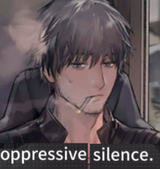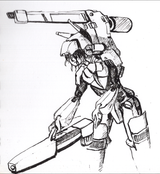>>96074170 (OP)>>Does actual writing ever occur?If you're playing by text, then absolutely. This tends to slow games down.
If you're playing by voice, a good GM will still do a fair bit of writing just preparing important descriptions and keyphrases ahead of time. Creating a dungeon or larger module for yourself is essentially a writing exercise, where you're trying to account for people being able to make different choices. If you're very lucky, and got the players excitied enough, they will spontaneously do some writing about their character, though this doesn't always yield perfect results, and tends to be an expression of them wanting more attention.
>>Do you really have to voice act as your character? No, not really. It's a nice bonus if you can, but tabletop gaming is not necessarily performative. It cane be, but that's not where the draw is.
>>Are "face claims" a thing? E.g. when you pick a random image or existing character to represent your own.If you're a huge nerd this will happen, but in longer-playing groups this will be seen as lack of creativity on your part. Interesting characters become interesting through their actions within the game, not because of their sheet or anything else established beforehand.
>>Is the storytelling really that good?Short answer: Depends on the people at the table.
Long answer: Tabletop gaming is the easiest way to achieve an emergent narrative, a phenomenon you will not really encounter in another hobby very easily. Emergent narrative essentially means having a story write itself in a way that ends up being better than anyone at the table could have come up with on their own, since it's the sum of everyone's contributions. There are many times when dice decide that things are going to happen that nobody expected. So, it could be said that the storytelling is bad when someone at the table thinks that they know best (typically this would be a bad GM, but it can be a bad player pushing over everyone).


